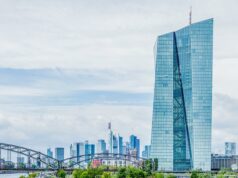At national protests against high fuel prices, a protester was fatally injured on Saturday morning in Savoy by a panicked motorist. In further incidents there were more than 400 injured.
What the authorities initially thought was an empty threat to social networks became a fact on Saturday: 300,000 citizens who previously knew little or nothing had put on their yellow warning vests as a token of togetherness and their common anger and erected roadblocks at more than 2,000 points in the country to protest against additional state taxes on diesel and gasoline. On Sunday, the action continued in at least 150 locations, and a new edition is already announced for November 24, this time as a rally on the Place de la République in Paris. France’s „rage citizens“ have probably not reported on the street last time.
The death of a protester overshadows the indisputable success of the mobilization against the increase of the fuel prices by additional levies, which are to serve basically the financing of the energy turn. As in more than 2,000 other places in France, in Pont-de-Beauvoisin, Savoy, a group of people, more or less spontaneously, had set up a roadblock early in the morning, without notifying the police. An automobile worker, who, according to the Ministry of Interior, wanted to take her son to the doctor, panicked and gasped. A 63-year-old protestant was fatally injured.
Despite numerous and serious incidents, the protest actions continued on Saturday and on Sunday against constantly rising state taxes on diesel and gasoline. In this on the Internet developed and organized movement mixes a displeasure about the purchasing power: Retirees complain about new taxes on their pension, Ambulanzfahrer and taxi drivers against additional competition by the liberalization of their professions: In the country people feel disadvantaged and neglected: often There is no school or train connection, no doctor, no shops, no entertainment options – but more and more taxes and duties, is their complaint.
The extent to which citizens in rural areas feel affected is also reflected in the surveys on the „Gilets jaunes“: nationwide, 73% support the protests, but in rural areas more than 80% support it. Posters or banners made it clear that anger is directed not only against taxes or government policy, but directly against the person of the President. Most of these protesters have organized themselves on Facebook at short notice. They almost consistently explain that they are neither in a party nor in a trade union and have never demonstrated in their lives – or if so, to celebrate the French victory in the last World Cup. Some had brought out the then used tricolor to swing it to the horn concert at the barriers. Between slogans such as „Macrondmission!“ (Macron resignation!), The Marseillaise was repeatedly sung. It should not come as a surprise that the populist rights of France – above all Marine Le Pen’s „Rassemblement national“ and Nicolas Dupont-Aignan’s party „France debout“ – want to recognize their own basis in these angry compatriots. They represent what the political scientists like to call the label „protest voters“.
On Wednesday, the government announced new subsidies for low-cost household heating costs and premiums for switching to electric vehicles or vehicles with low emissions, in order to appease the people’s anger. This was counteracted by the fact that, due to falling prices per barrel on the oil market, the cost of refueling at the pump visibly decreased by a few cents per liter. But that did not cool the anger at all.



